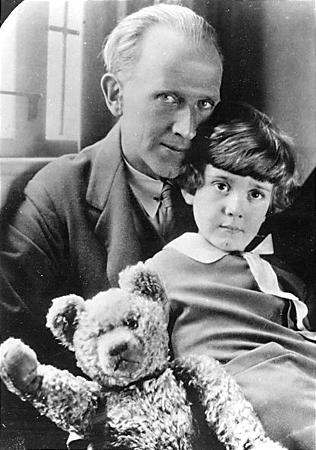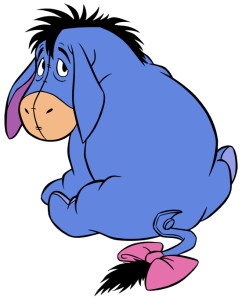No one knows how their career is going to go, and that goes quadruple for creative types. What the writer likes and what the audience enjoys are never going to line up perfectly, and the fickle nature of fate makes it possible that even the best work might never even be seen. Firefly gets half a season, and I’m pretty sure “One Tree Hill” is still on the air. Maybe. I don’t know, I can’t back that up, but it ran for a “holy-shit” amount of time.
Of course, just like good work can go unnoticed, the opposite can happen too. Now, some of these authors cried themselves to sleep on heaping castles of cash, so it can be difficult to sympathize, but I imagine churning out art you hate could be a damn exhausting experience.
Apparently this phenomenon is so common that I found hundreds of examples while researching this article. If it weren’t so damned depressing, I’d consider expanding this into a regular column. Anyway, let’s go!
Arthur Conan Doyle Gets Homicidal About Sherlock Holmes
Sir Arthur Conan Doyle, world-famous Victorian author, created one of the most enduring characters in fiction. Sherlock Holmes needs no introduction – he’s never taken a break from literature, movies, or television. His entire deductive methodology has been co-opted by every investigative character on the planet, and there’s a decent argument that television in particularly (with its abundance of procedural crime dramas) would be a very different landscape indeed if he’d never been created. Plus the world might be deprived of Benedict Cumberbatch’s cheekbones (which are sharp enough, they say, to cut reality itself).

Unfortunately, the guy who invented Holmes despised him. Arthur Conan Doyle was a medical doctor, but his true passion was historical novels like “The White Company.” He grew weary of the Holmes stories because their commercial success distracted him from his historical novels. After just four years of Holmes novels and short stories, Arthur Conan Doyle wrote “The Final Problem,” the story that killed Holmes alongside Moriarity. When asked about why he’d kill off his most successful character, he had this to say: “Mmm, chicken and potatoes!”
No, he actually said this: “I have been much blamed for doing that gentleman to death, but I hold that it was not murder, but justifiable homicide in self-defense, since, if I had not killed him, he would certainly have killed me.”
Unfortunately for Doyle, the fan and editorial backlash was titanic. His editors were begging him for new Holmes, and fans were harassing him in the streets. Fans, a great deal of them, were actually spotted in London wearing black arm bands in mourning. Fun fact: the death of Sherlock Holmes actually lead to some of the first documented cases of fan fiction – many believe it to be the birth of the movement. Amateurs were writing their own Sherlock Holmes stories to fill the gaps in their lives, probably because the character had affected them so deeply, but also because they didn’t have access to interweb pornographs.
Doyle was forced to return to the character, due in part to a failing medical practice. The other half of the equation is that none of his other writing brought him any of the attention (or money) that the Holmes stories did. He tried to hedge his bets at first – the new Sherlock Holmes story took place in the past, before he and Moriarity went over a cliff like Looney Tunes characters. His resolve didn’t last long – bowing to pressure, he finally resurrected Sherlock Holmes in 1901’s “The Hound of the Baskervilles.” He’d pen many more Holmes stories before his eventual death, but there was never any evidence that he grew to enjoy his creation.
A.A. Milne Drops Pooh
Okay, I’d like to formally apologize for that pun. I am very sorry. Anyway, everyone knows Winnie the Pooh – he’s easily one of the most famous honey-eating yellow bears on the planet. Pooh gets ravaged by bees, he’s constantly having hallucinations about elephants, and he has a quasi-homosexual interspecies relationships with a baby pig. Maybe. I’m still not sure what the story is with those two.

The creator of Pooh (heh), author A.A. Milne was born in London in the early 1900’s. He began his career writing humor articles, which is a detestable sort of business that ought to rammed up the back-half of a donkey who is then eaten by the front-half of a T-Rex. He wrote for “Punch,” a sort of proto-Mad Magazine the dealt in whatever people from the thirties found funny. Probably “being able to afford food” and “those wacky Huns.”
Milne enjoyed flip-flopping around when it comes to writing topics – he penned hilarious essays about Calvin Coolidge (probably), he wrote detective novels like “The Red House Mystery,” and even worked as a screenwriter and a poet. It’s not surprising that, as part of his vast repertoire, he also wrote children’s stories and rhymes. So, one day, he writes a bunch of stories about his son Christopher Robin’s stuffed animals, and you know exactly where this is going.
http://www.youtube.com/watch?v=AHcOPcM0hJU
The Pooh stories were hugely popular the world over, but Milne wasn’t satisfied. He considered children’s books to be another facet of his multi-layered career. As he got older, however, none of his works even came close to the popularity of Winnie the Pooh, and he grew bitter about being pidgeon-holed. His adult works were even criticized for not being Winnie the Pooh – the poor guy couldn’t even get people to read his other stuff, they were so enamored of the Hundred Acre Wood.
Milne would go on to write dozens of plays (what he considered his true passion), but everyone pretty much remembers him as the guy who thought a bear’s ass stuck in a rabbit hole was hilarious. It was, A.A. It was.
Eeyore, take us out.


